Baggio's year in Bologna
The story of the season that relaunched a legend told with the help of those team-mates who knew him best
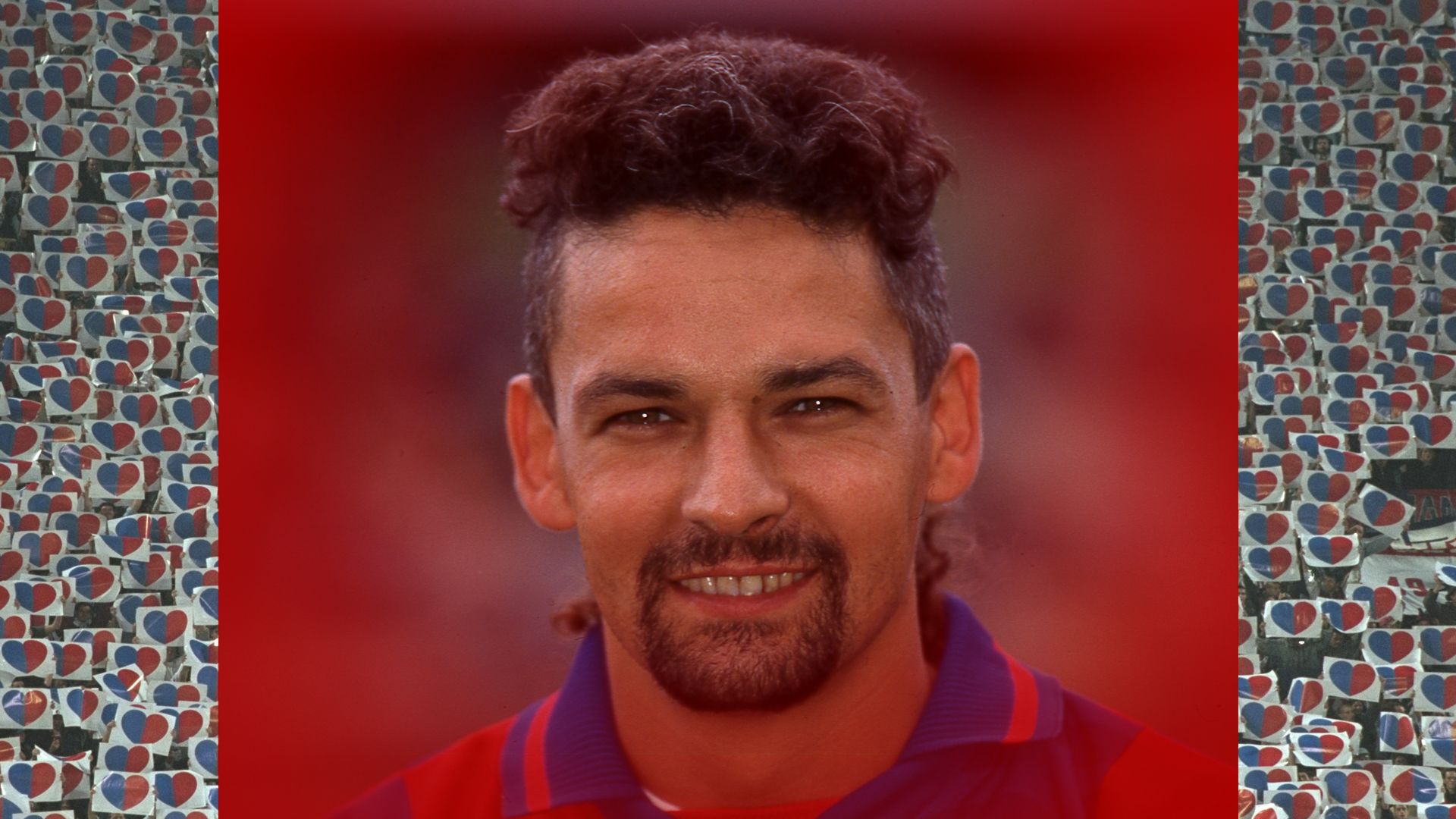
In the summer of 1997, Roberto Baggio, one of the game's greatest players, had a problem. Misunderstood at Milan, he was 30 and out of options. The situation was urgent. The World Cup in 1998 offered the chance for redemption but the fans' favourite had to get there first.
He turned to one of Italy's mid-table teams, an unlikely home for a superstar. Yet, it was there he enjoyed the best scoring season of his Serie A career. The relaunch was a triumph. The World Cup, cathartic. This is the story of Baggio's year in Bologna.
Just four years earlier, he had won the Ballon d'Or. The World Cup in '94 was almost his tournament too. Instead, his penalty kick in the shootout flew over the bar and it was Brazil, not Italy left celebrating. The pain of that moment has always stayed with Baggio.
His relationship with the national team coach Arrigo Sacchi, often uneasy, unravelled soon after. At club level, the dynamic with Marcello Lippi at Juventus was little better. A move to Milan in 1995 offered some hope until Sacchi returned there the following year.
It seems strange to think Baggio would be viewed as a problem but the game was changing. Sacchi had begun to change it with the success of his 4-4-2 formation. Now, football favoured athleticism too. Baggio was seen as an anachronism, an indulgence.
Needing another club, Juventus was not an option. They had a new hero in Alessandro Del Piero. Inter had gone for Ronaldo, a reminder in football there is always the next star. A move to Manchester United risked taking him off Italy's radar in a World Cup year.
It was not quite Bologna or bust but that is how it must have felt when Parma coach Carlo Ancelotti blocked his transfer. Back then, the young Ancelotti was a disciple of Sacchi and therefore convinced that Baggio would compromise his all-important 4-4-2 system.
These were strange days for the archetypal No 10. In a symbolic act, the player known as Il Divin Codino, the divine ponytail, even dispensed with his famed appendage.
New haircut, new start.
Bologna had been in Italy's third tier just two years prior but were enjoying a revival. The location was convenient but perhaps most importantly this was a team grateful for his gifts.
Here, Baggio was not a problem but a cause for celebration.
"For the city, it was an immediate party," Giancarlo Marocchi tells Sky Sports.
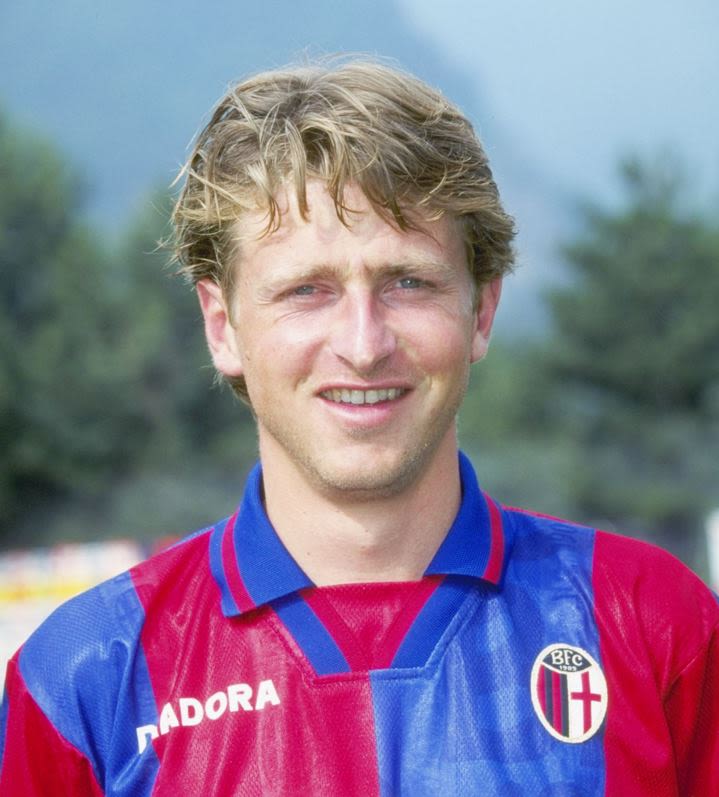
Marocchi knew Baggio well. They had been team-mates for five years at Juventus. Marocchi had even been part of the Italy squad at the 1990 World Cup on home soil as Baggio announced himself to the wider world with his slaloming goal against Czechoslovakia.
"While we were waiting for him, I told my team-mates all about Robi Baggio."
The Bologna players were not the only ones waiting.
"There was huge enthusiasm even before he joined training. Immediately, 27,000 fans got their season ticket. There was surprise that he would come. He was the ideal player for Bologna at the moment but we were also the ideal team for him to relaunch himself."
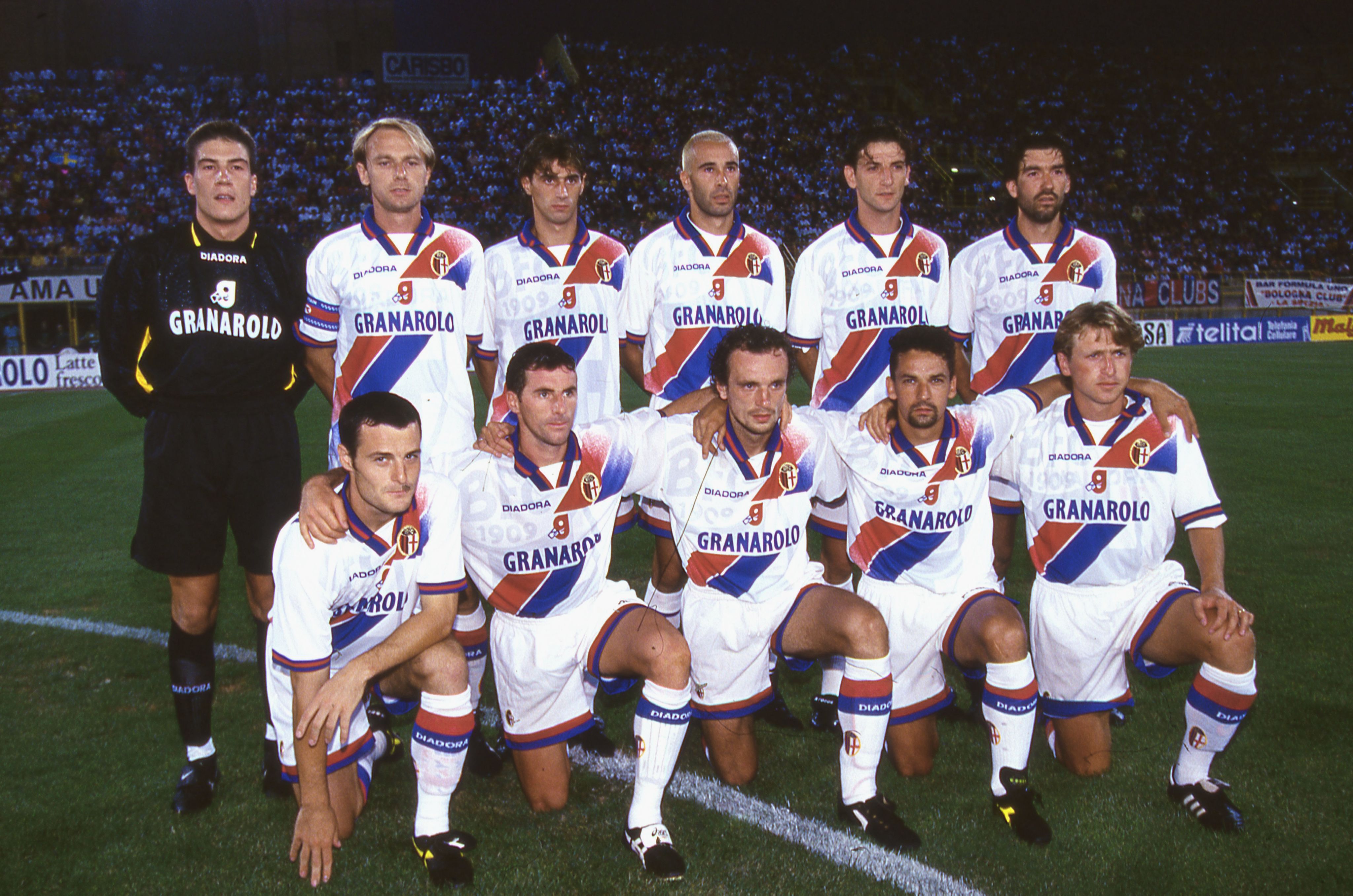
Marocchi had seen the very best of Baggio at Juventus, lining up alongside him in the 1993 UEFA Cup final against Borussia Dortmund when he scored twice in the first-leg victory in Germany. It was the performance that helped win him the Ballon d'Or.
"He was something special for football," recalls Marocchi.
"I consider him to be one of the most elegant footballers when he had the ball at his feet. This is why everybody loved him. It did not matter which jersey he was wearing, it did not matter the result of the match, it was just beautiful to watch him play.
"The environment at Bologna was very different to the environment at Juventus. The team-mates at Bologna were very different to the teammates at Juventus. But despite all the differences, he did not change. He always remained Roberto Baggio."
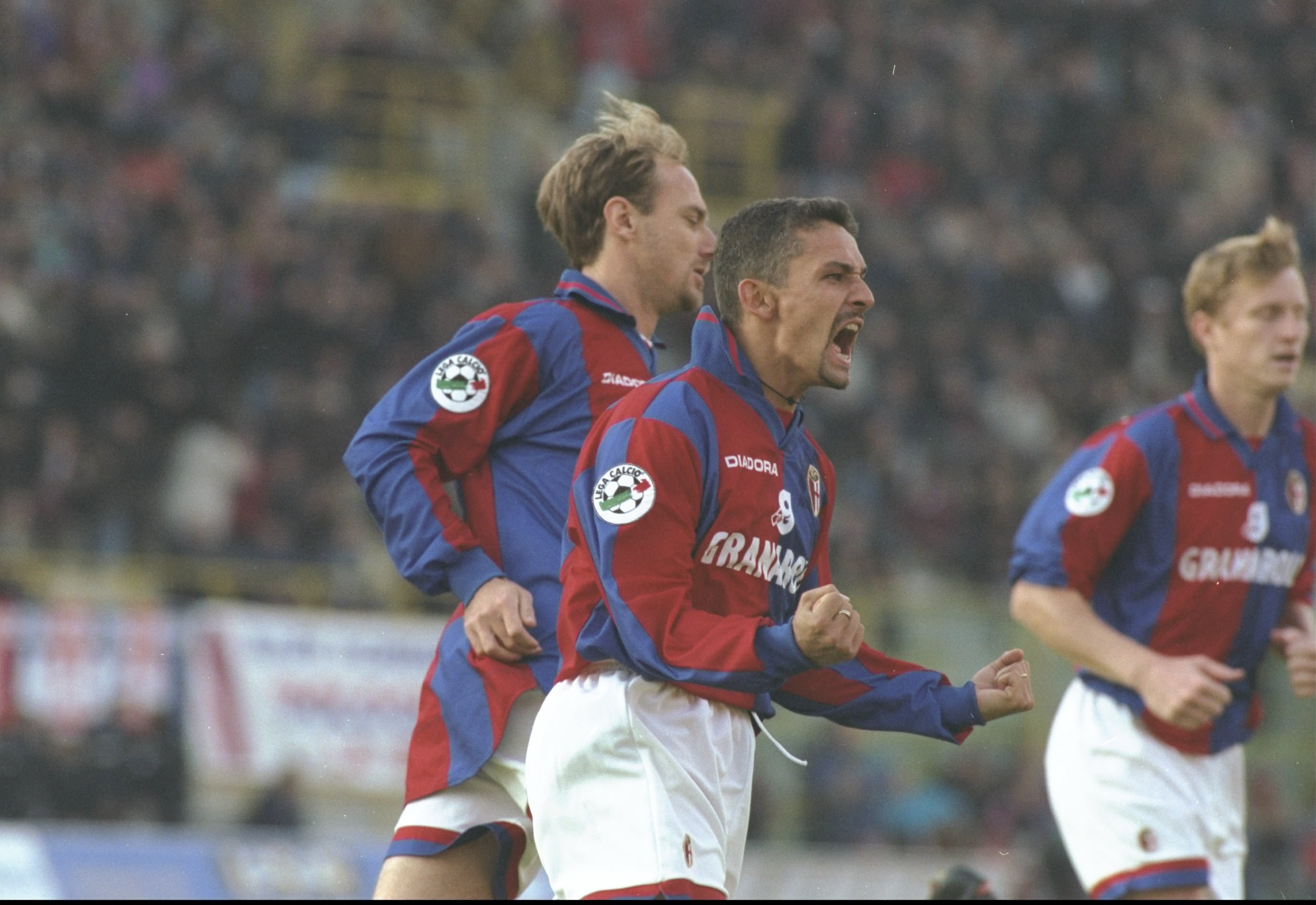
There was talent in the team. Davide Fontolan and Massimo Paganin had pedigree having come in from Inter. Stefano Torrisi had just represented Italy, while Carlo Nervo would go on to. Kennett Andersson was a hard-working forward and an effective target man.
"Whenever I am asked who the best player that I played with was, the answer is always Roberto Baggio," Andersson tells Sky Sports. "It is never fair to pick one but I think everyone else I played with will excuse me. It was quite extraordinary that he came to Bologna.
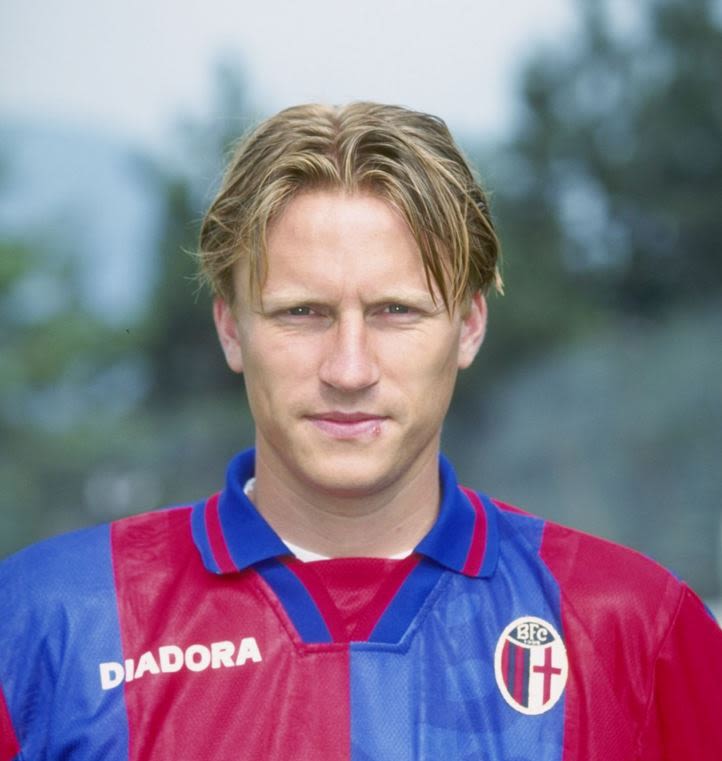
"But I found him to be a super nice person. In the pre-season that we had in the mountains before the league started, we did not need any time to get close to him, he became part of the team like everyone else in no time. Within the group, he was just a cool guy."
A cool guy off the pitch. A genius on it.
"I am not a person who is usually too impressed by other players but I make an exception for Baggio," adds Andersson. "It was extraordinary. He was on another level to the rest because he could see things on a football pitch that I did not know players could see."
There was a goal on his debut away at Atalanta, a game in which Andersson also scored.
"Everywhere we went for away games it was just crazy. There were so many people outside the team hotel. It was a big difference to before because everybody was there for Baggio. It was always different with him because everybody wanted to get close to him."
It was no different at home. There were two more goals against Inter in his first appearance in front of the Bologna fans, a game that also saw Ronaldo star for the away team.
"I remember that it was a celebration every time we played at home," says Marocchi. "The atmosphere around the team, the club, the fans, everything. Sundays were like parties."
The problem was that those opening games both ended in 4-2 defeats and for months the results did not come. Baggio did score a hat-trick in a memorable 5-1 win against Napoli with two penalties and a deft flick but that was the only win in their first 11 matches.
A typically inventive lob against his boyhood club Vicenza lit up the game, but Bologna still lost it. When beaten 4-3 by Udinese in December they were one place off bottom.
"It is undeniable that Baggio has been one of the best forwards in the history of football," says Marocchi. "But he preferred to turn the game of football into something beautiful, rather than just scoring. Otherwise, he would have scored twice as much."
For a time, even Bologna seemed to see Baggio as a luxury. His out-of-possession work was not a strength. Though he glided with the ball at his feet, this was a player who had suffered a career-threatening knee injury as a teenager at Vicenza. Gone 30, he was no athlete.
Coach Renzo Ulivieri benched him against Milan and earned a goalless draw. When he omitted him against Juventus soon after, denying Baggio his chance to impress against another former club, there was widespread anger, not least from the player himself.
He skipped the team meeting. Ulivieri threatened to quit.
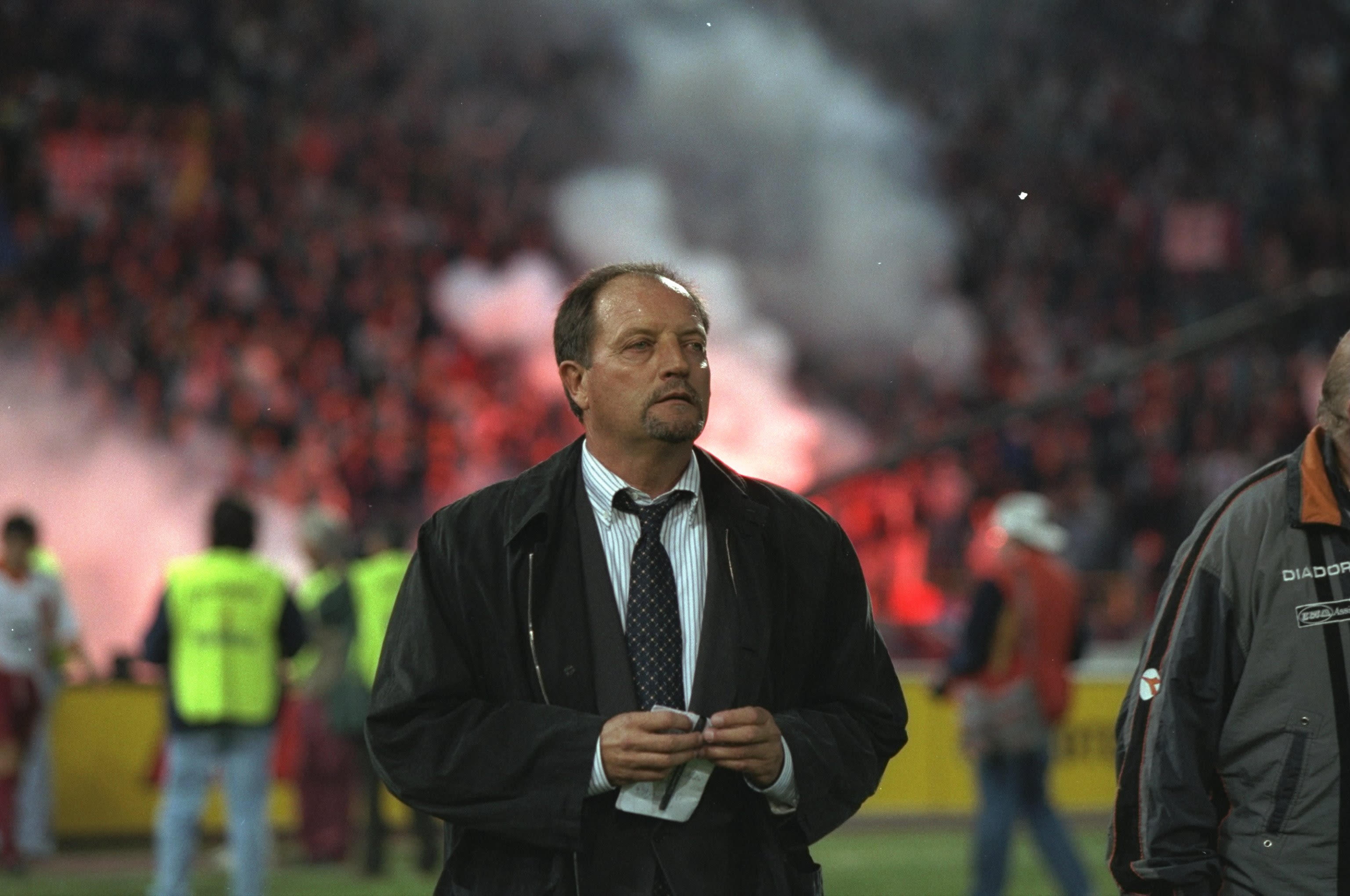
Andersson was unimpressed.
"It does not matter who you are, even Roberto Baggio, you always put the team first. You can say that 10 out of 10 times the coach is wrong to put Baggio on the bench but it does not matter, you always have to do what the coach tells you to do. It does not help anybody.
"I was frustrated by that situation, both by Baggio not playing and by Baggio not showing up to the meeting. It was two strong personalities but we came through it. I like both of them as people so I did not want any trouble. I am happy that it was sorted out in the end."
Marocchi was more relaxed about events.
"My team-mates were taken aback because all the media arrived wanting to know what was happening and asking questions," he remembers.
"I was one of the more experienced players in that team, so I managed to be amused by the situation. Since I knew both Ulivieri and Baggio very well, I was aware that such a situation could happen eventually. They were two different personalities.
"In my opinion, you have to look at Baggio in a different way compared to other players. He is not somebody who can be judged in the same way as an ordinary player. Baggio is something different but sometimes managers were not able to treat him differently.
"There were managers who were a bit strict with him from the tactical point of view. It was difficult for managers to know where to position him. That was Ancelotti's problem. Was he a striker or a midfielder? He was not easy to pigeon-hole because he was different."
It was a time of tension but the issue was resolved.
Ulivieri stayed. Baggio was never left out again.
There is a line from George Orwell. "The imagination," he argued, "like certain wild animals, will not breed in captivity." Bologna had plenty of reliable performers. What they did not have – what nobody else had – was a player like Baggio. It was time for him to be set free.
From then on, he roamed wild.
"We were in the presence of something different," Marocchi explains.
"If you have a player like Baggio, you build the team around him. If you do that, he will help you win and you will go up the table. Fortunately, in that season with Bologna we all decided to move in the same direction. At a certain point, we all started to play for him.
"And he was so good that all those goals arrived..."
Having already won away at Inter, the team went on a nine-game unbeaten run from March, the partnership between Baggio and Andersson blossoming. The Swede scored twice against Vicenza and then managed a hat-trick in a 3-2 away win against Sampdoria.
"I was 30 and still learning new things from him," he explains.
"It allowed me to play in a different way. I could make different runs and he would see them. I could help him just by making space. I think a couple of my assists were not really assists, I just happened to be the second last person to touch the ball and he did the rest.
"When he scored, he more or less gave me an assist."
Baggio's goals included two in a 3-0 win over Milan. It was a significant day for him, sneakily nicking the ball away from the defender for his first goal. He had made his point.
Remarkably, that was the first of eight goals in his final five appearances for the club, enough to take him to 22 for the season, finishing second in the race to be Capocannoniere.
Bologna even finished above Milan, eighth place enough to qualify for Europe.
"We had a great season. It was an amazing result for Bologna."
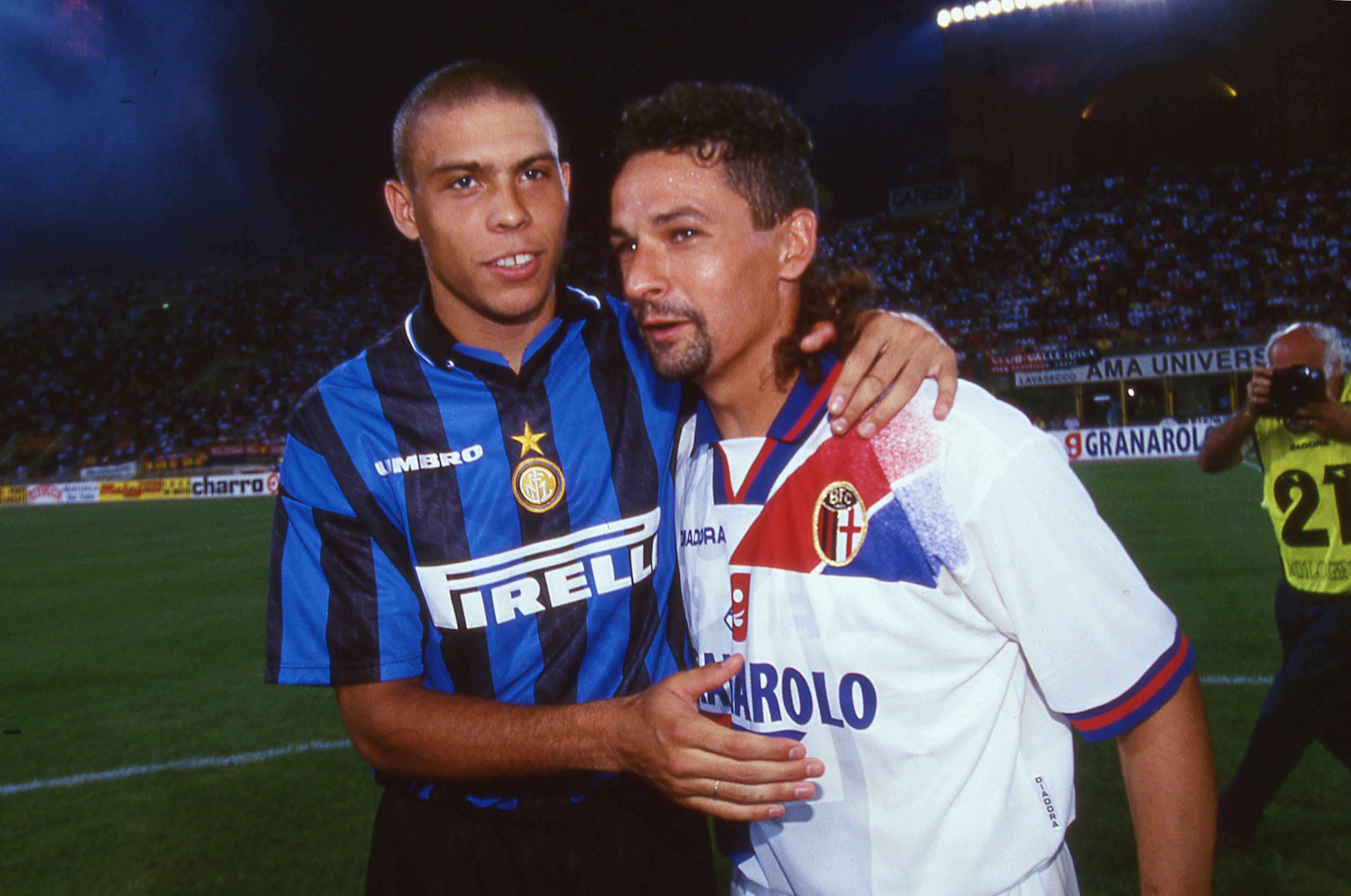
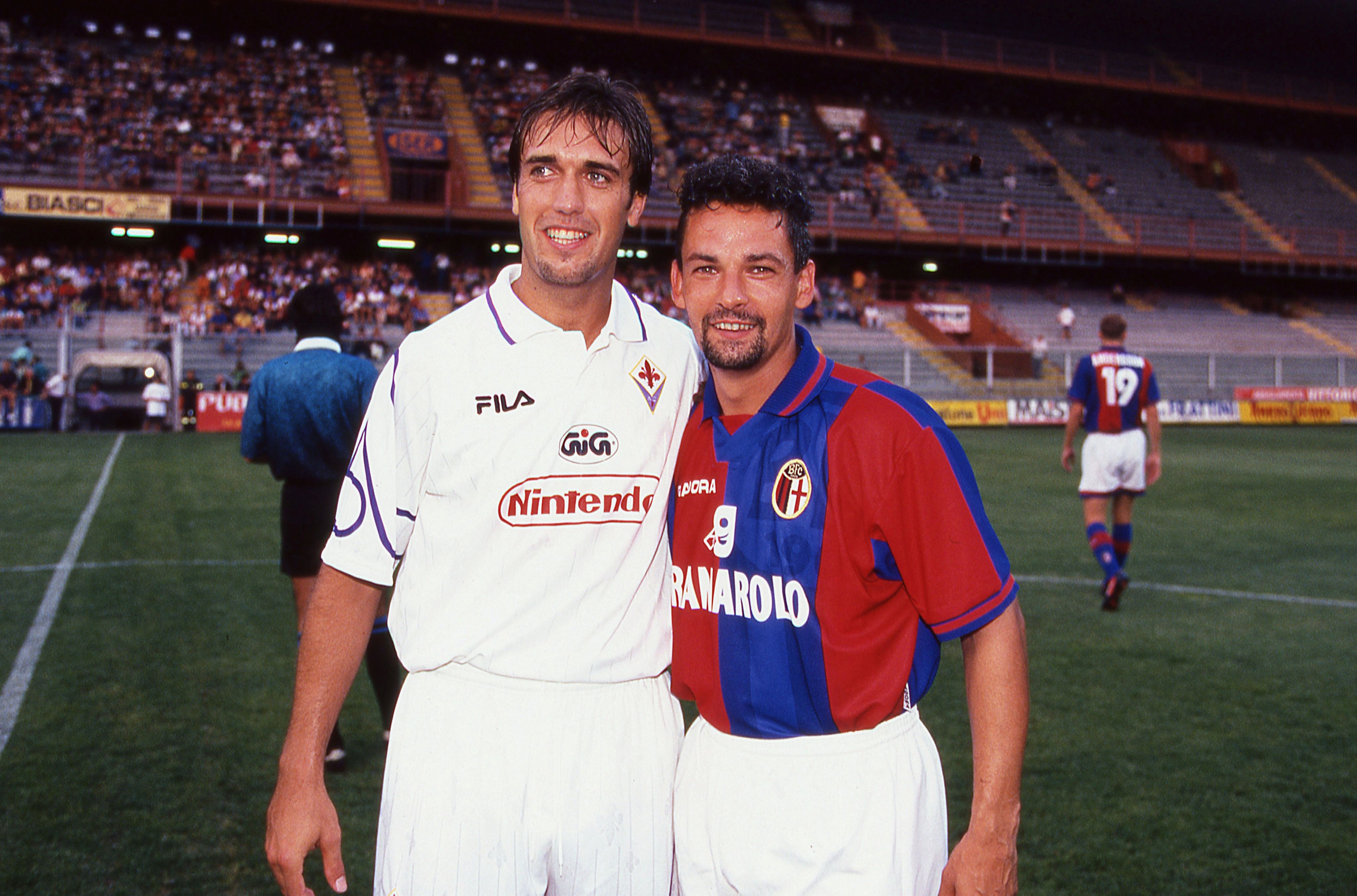
For Baggio, the goals added to the clamour for his inclusion in the Italy squad for that summer's World Cup in France. Just as he had intended, this most unexpected of transfers had made it impossible for the national team boss Cesare Maldini to ignore him.
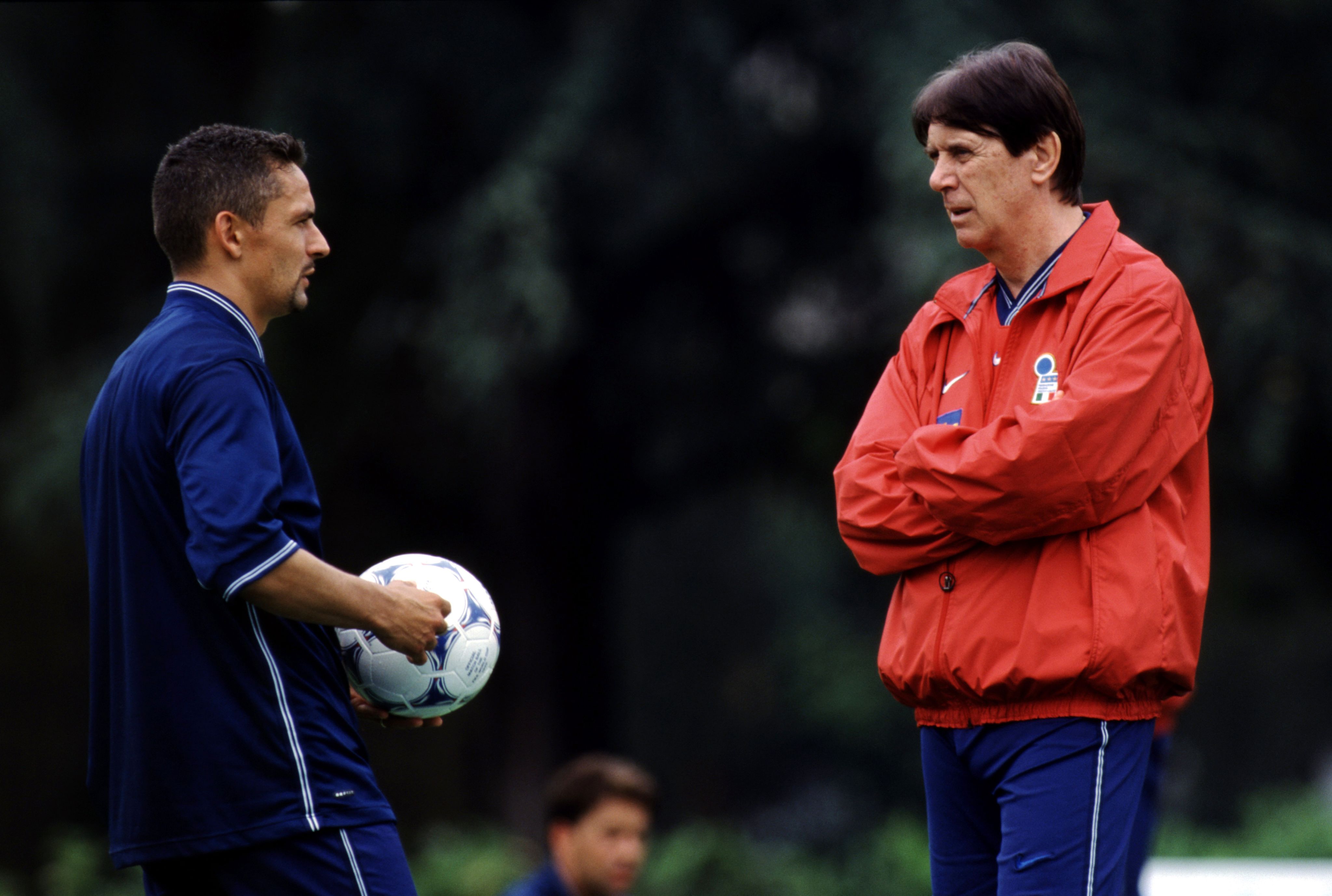
There would be no glory at the World Cup, but there was redemption. That came with the penalty he scored in the opening game against Chile.
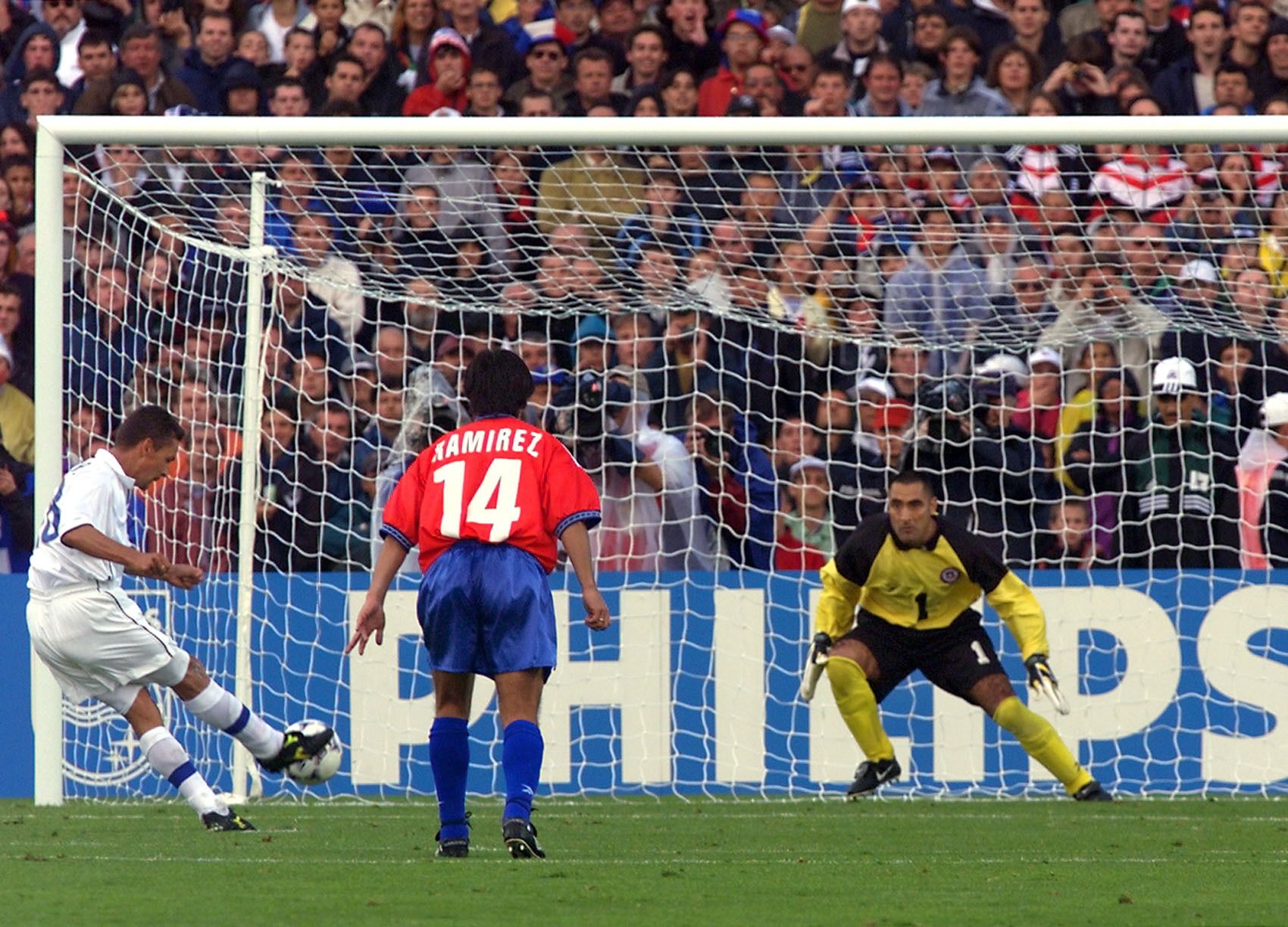
He also converted his spot-kick in the quarter-final shootout against France. Luigi Di Biagio did not and Italy were out.
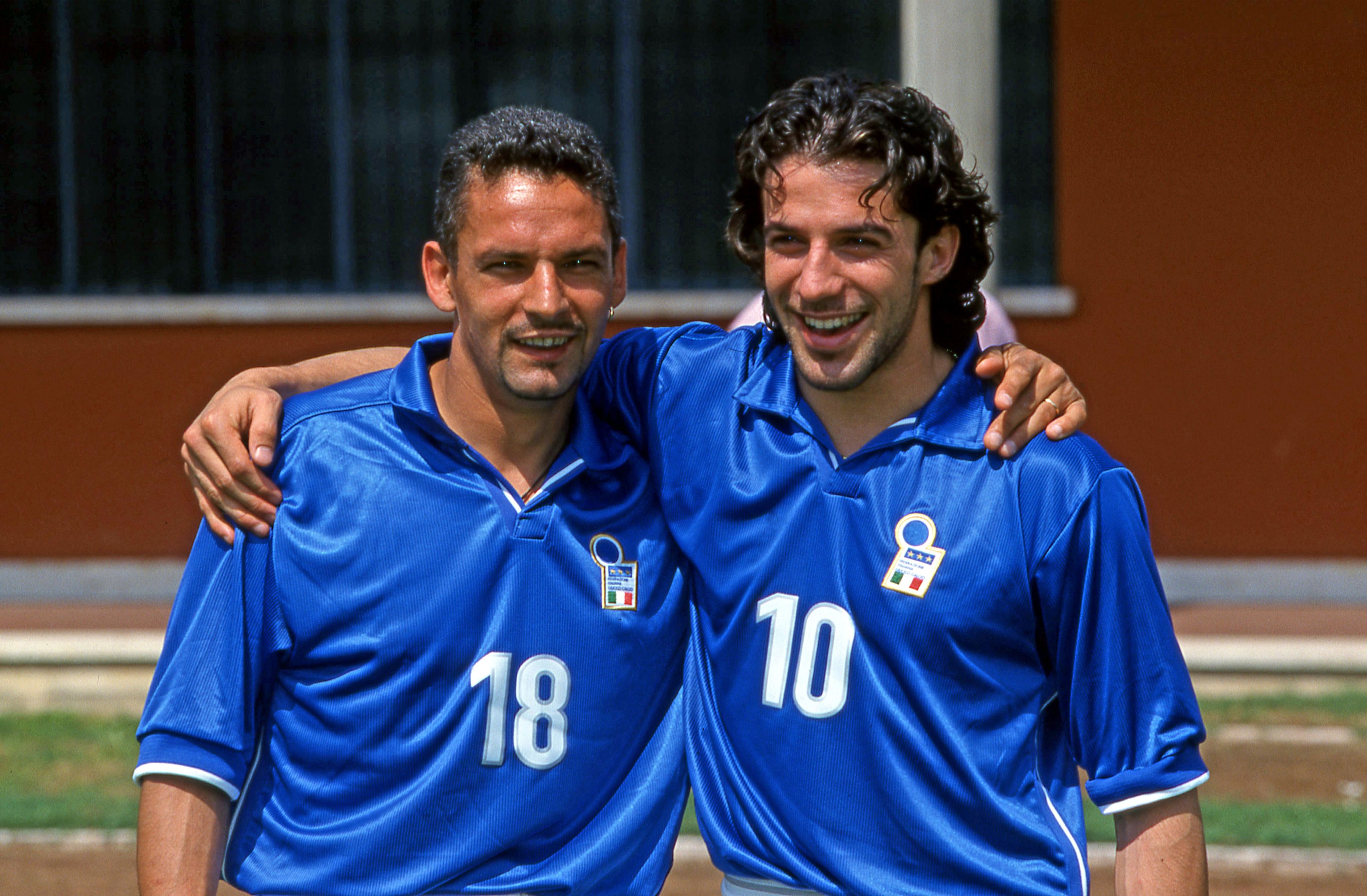
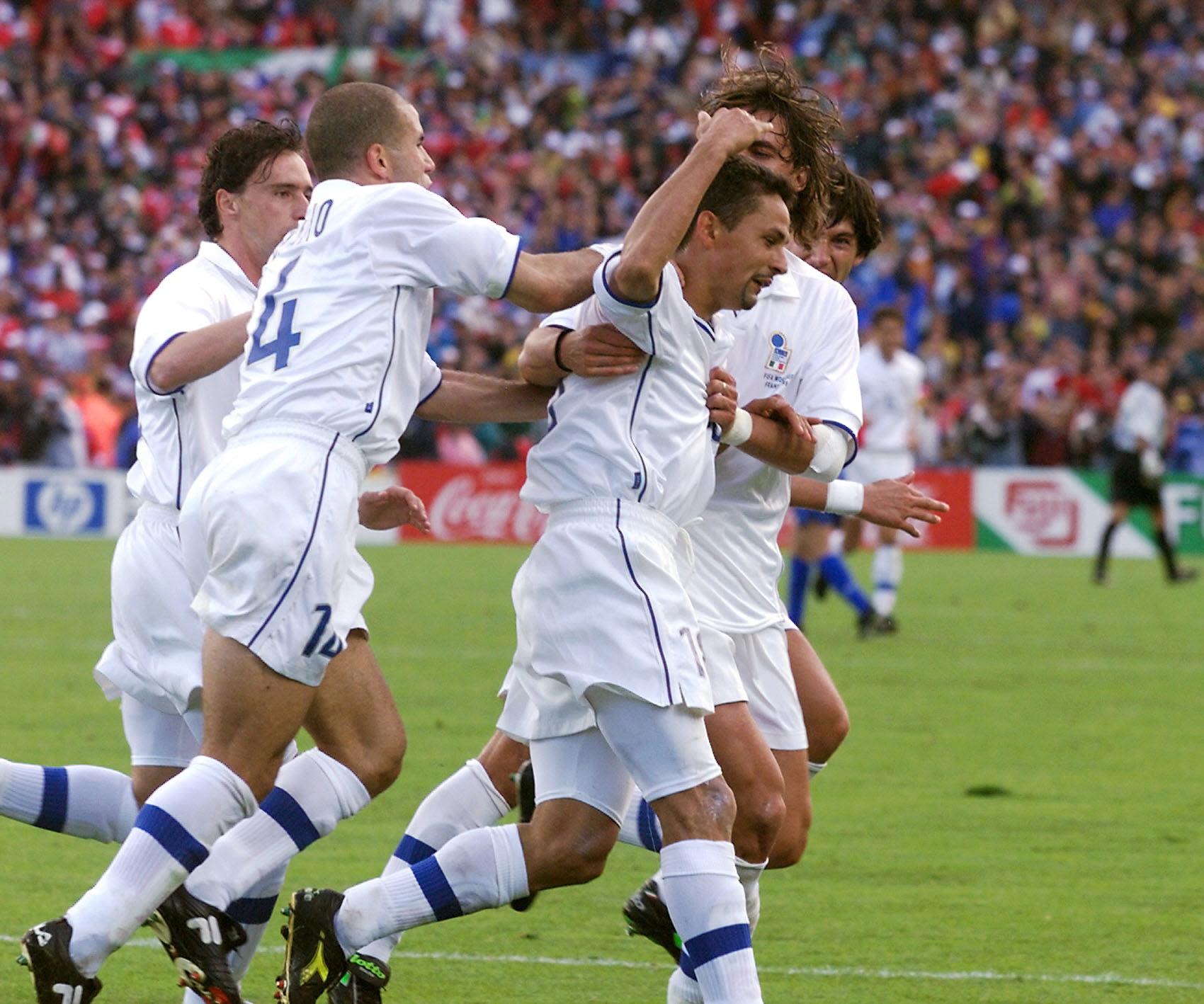
From there, Baggio went to Inter, completing the set of playing for his country's three biggest clubs. Inter chairman Massimo Moratti loved him. Lippi, who took over the following year, did not. Once again, Baggio had to move on, this time finding love at lowly Brescia.
Perhaps that was just how it had to be. Yes, Baggio won a league title in his last season with Juventus and his first with Milan, but he was never embraced at the biggest clubs for long.
He belonged to Italy, he belonged to the people.
In Bologna, they will never forget. "Everybody here is still thanking the president now," jokes Marocchi. The man himself will not forget either. Ancelotti regretted his decision that summer, but Baggio never did. "I only have affection and gratitude for Bologna."
Everyone else is grateful to him.
"There is a divide among those who love Roberto Baggio," concludes Marocchi. "There are those who see him as just a great player. And there are those who see him as the greatest."


